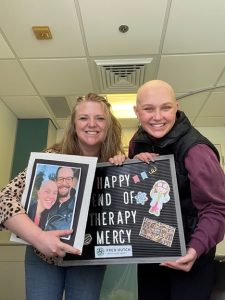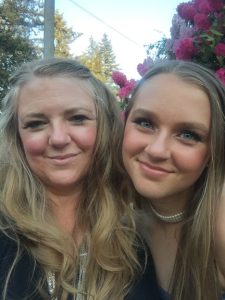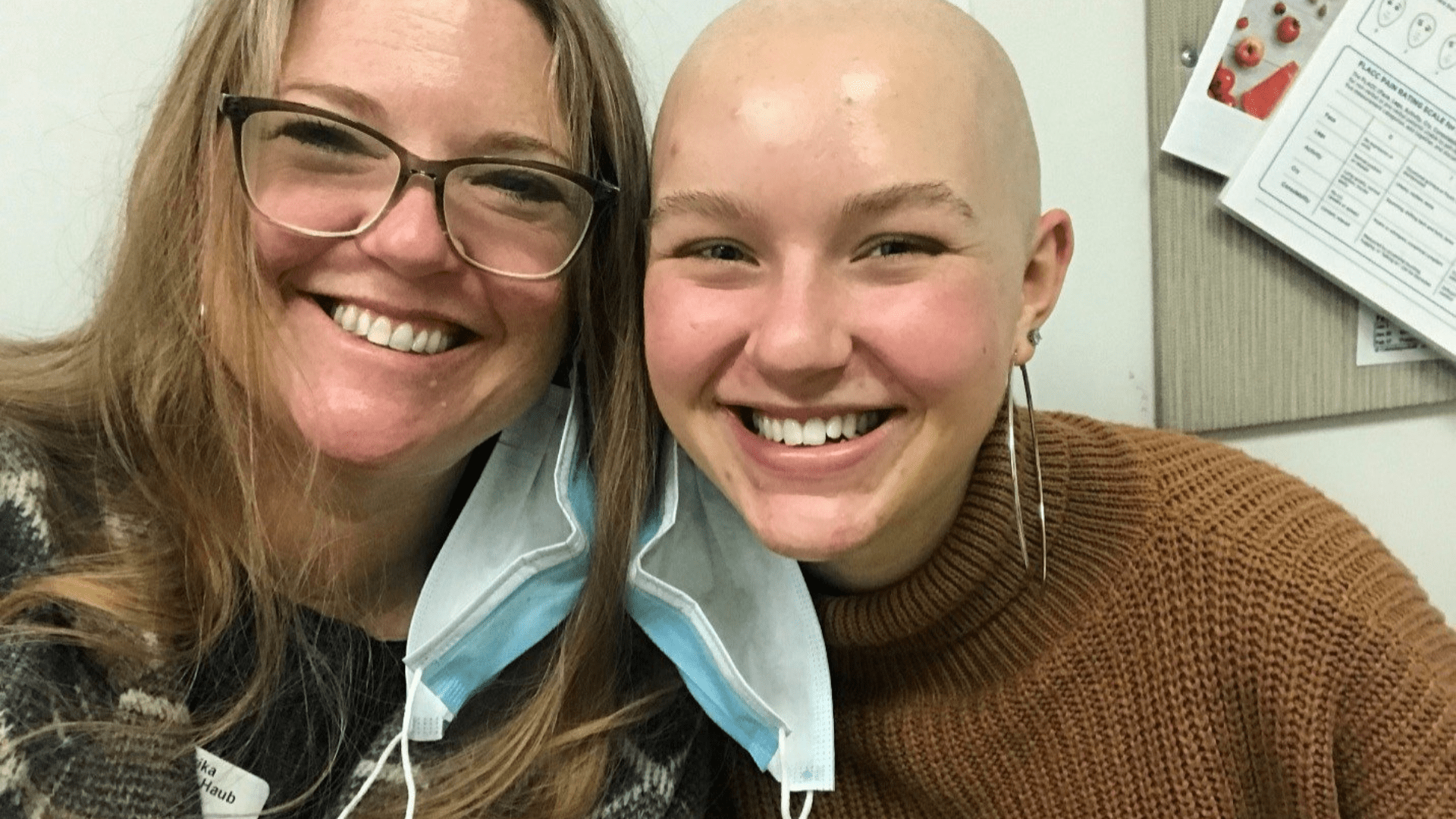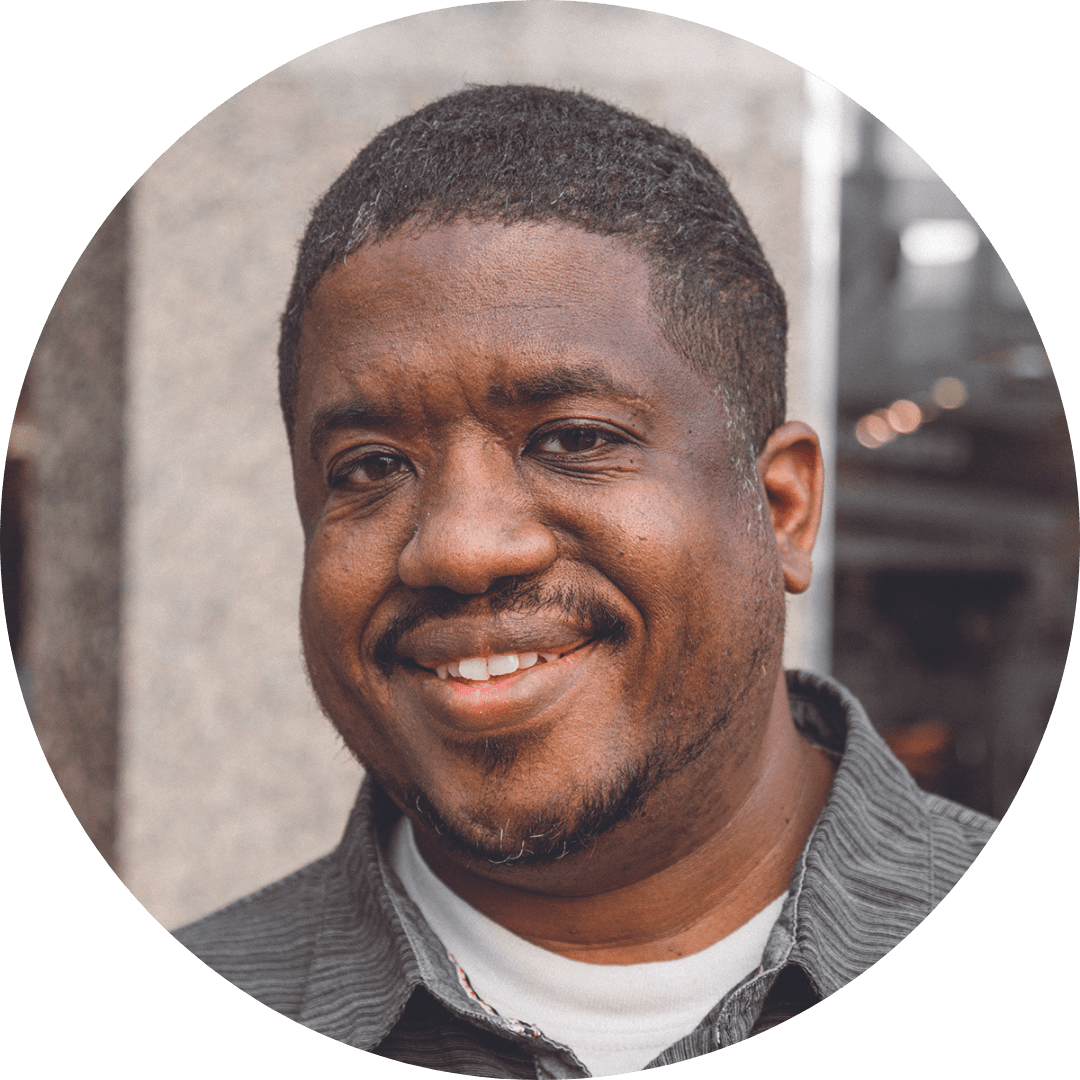In honor of Women’s History Month, Jelani Greenidge sat down with mother and daughter duo Erika and Mercy Haub. Erika has served in various pastoral roles in the Pacific Northwest Conference of the Covenant Church, and high-schooler Mercy has been a fundraiser and activist whose journey of cancer advocacy and subsequent diagnosis has earned her extensive media coverage, including an appearance on “The Ellen DeGeneres Show.”
The conversation has been edited for length and clarity.
Jelani: As you both examine your lives and faith journey stories, are there other women whose stories echo your own?

Erika: Mercy and I both had the same answer to this question. We both resonate with the story of Esther. It starts with me back in Chicago when I kind of stumbled into a role I could never have imagined or predicted for myself—similar to how Esther found herself in a position where she had the opportunity to help save her people.
I was a sophomore at North Park, and there was a gang threat put on one of the girls in the After Hours program I was running. The little church I was part of asked, “How can we keep Lisa safe and what can we do to help her?” One of the older ladies in the church turned to me and said, “Well, what is North Park going to do? What are you going to do about this?”
My response was, Holy cow, what am I gonna do? That question, and how I answered it, was the absolute turning point in what became my vocation and the beginning of ministry for me.
Mercy: You took the words right out of my mouth. I have found myself in a position where people listen to me, but I sort of stumbled onto a platform where I could talk about what was important to me. I was having all those media experiences—wonderful, but also terrifying. I was thinking, Okay, I have these 15 seconds of fame. What message do I want to share with people if they’ll listen?
But I didn’t work to get cancer, and I didn’t work hard to get these media outlets to pay attention to me—it just happened. It was a wonderful opportunity to do a thing I guess I was meant to do.
Jelani: Your experiences have given each of you a sort of platform. How does your faith in Jesus help you navigate that space?
Mercy: People knew that I got cancer, knew my name and my story. I’ve continued my advocacy, and clearly, I’m still working on the cancer-being-a-part-of-my-life part. As our world has gone through tumultuous events, maybe I can offer words of healing and be a positive voice. People have continued to listen to me and I want to earn their respect, not just because I’m a cancer kid, but because I’m saying what I believe in, standing up for things, and caring for the people I meet.
Erika: We keep talking about cancer because that’s been a huge part of her life, even long before she got it. She’s wanted to cure it since she was a child because she watched her best friend lose her father. From the very beginning, I’ve seen this deep movement of compassion in Mercy. We talk a lot about who Jesus is and how Jesus was moved in his bowels with compassion.
So then this cancer happens to her. She takes her suffering and wants to use it for good, to build up and bless others. We get messages from people all over, saying, “Mercy, because you shared your story. I was able to face my own diagnosis.”
None of us would’ve ever wished this past year on ourselves in any way, but can God use it for good? Yeah. Mercy has leaned into that.
Jelani: Erika, from your perspective as a pastor and theologian, or as I like to say, as a “professional Christian”—
Erika: Takes one to know one, right?
Jelani: Exactly. What parts of this journey are different or challenging because you are women? Is that something you think about?
Erika: Early in my ministry career, I would’ve said, “I’m one of the lucky ones.” At that point, my worst experience in ministry was in seminary when we had to critique each other’s sermons. One dude raised his hand and objected to my eyelashes, because he said they were distracting.
Jelani: (Shaking head.) Your eyelashes?
 Yeah. I mean, that’s just silly.
Yeah. I mean, that’s just silly.
It wasn’t until I got closer to the pastoral hierarchy in the church that I started getting serious pushback. I wasn’t prepared for it. I’d heard other women talk about the stained-glass ceiling, how there’s room for you—up to a point. I’ve watched a lot of my peers move into chaplaincy or go through career change after career change.
I’ve always said I don’t want to try to be anywhere people don’t want me, and I’ve had tons of great opportunities. But I have seen the ugly underbelly. I think you could ask any woman pastor to tell her stories and you’d hear those examples. Because they’re still happening.
Jelani: And yet you’re still here.
Yet I’m still here, because those voices don’t get to win.
Jelani: Mercy, in your advocacy do you think you face bigger obstacles because you’re a young woman?
Mercy: I guess the people I surround myself with who are trying to make positive change are nearly all women. We feel this strength in trying to make change for other people. I was able to host a fundraiser and stand in front of the entire school at a football game. People cheered me on, and it was a great feeling.
But I was speaking out against cancer. So there’s not really an argument against that.
Jelani: Nobody’s saying, “Yo, I’m pro-cancer over here. All cancers matter.”
Right. But maybe an appendage to my cancer-survivor identity is the debate about masks and Covid-safety protocols. Because immunocompromised individuals are living in a different world right now than people who are healthy. So it’s certainly been an exhausting fight in that sense.
Overall, I’m really grateful for all the generations before me who have fought. I try to hold that gratitude in my heart as I work for the next generation.
Jelani: In this season of Lent, are there any spiritual practices that either of you are embracing?
Mercy: We don’t really have a traditional Lent thing. I think we’re both focusing on surviving.
Jelani: I heard that.
(Laughing) Survival is a good thing to focus on right now. Trying to give something up, or take something on, obviously working on your relationship with the Lord, is a wonderful thing. But trying to do that when you don’t even know how next month will be—maybe that’s a little premature.
Erika: I’m giving up cancer for Lent.
Jelani: (Side-eye). Can you do that?
No, but for real, this has been an interesting journey. What is happening in the life of Jesus that we are acknowledging during Lent? It’s 40 days in the desert without provision.
Jelani: Struggle.
 Suffering, oh yeah. And let’s add some temptation too. So it’s this desert wilderness time. That’s where I am in my spirituality. I’m trying to piece together something that got shattered. There are the things that you think will happen in your life, whether it’s your dreams, hopes, vocation, or family—and something like this comes along and you just have to acknowledge and mourn the losses.
Suffering, oh yeah. And let’s add some temptation too. So it’s this desert wilderness time. That’s where I am in my spirituality. I’m trying to piece together something that got shattered. There are the things that you think will happen in your life, whether it’s your dreams, hopes, vocation, or family—and something like this comes along and you just have to acknowledge and mourn the losses.
I sent Mercy a quote earlier today from historian and theologian Kate Bowler, who wrote a New York Times bestseller about living with cancer. She reflects on what it means to have a time to mourn. As Christians, I think we tend to glance over that, because it makes us uncomfortable. We don’t like to sit in the mourning side of things. We wanna get to Easter Sunday. So for me, the Lenten focus is asking, where am I experiencing healing? Where am I still living in the trauma of this last year? And asking with my therapist, Where was Jesus when this was happening?
Jelani: It might not be a traditional approach to Lent.
That’s right.
Jelani: But we do have a long tradition in the faith of people suffering and Jesus walking with them. Maybe we have a better sense of commonality in suffering because of the pandemic. You both are modeling what it means to rejoice with those who rejoice and to mourn with those who mourn. And it’s not a linear thing, like, “Okay, Tuesday we’re rejoicing and then Thursday at 12:30, we’re gonna switch back to mourning.” It’s ongoing, happening at all times, suffering and rejoicing all intermingled.
Mercy: A year ago was my final cancer treatment, and the video of that is sort of what got me on the radar of the Ellen show. It was such a bizarre day because I woke up absolutely dreading that day. And then I had this absolutely wonderful moment and celebration of community. All those people came out for me.
It was a roller coaster of emotions.
Jelani: Is there anything else that either of you want people to know?
Mercy: One thing I think that kind of gets brushed over—going back to the cancer thing—it doesn’t stop when you ring the bell.
Jelani: For the final treatment.
Yeah. It’s a constant adventure. And I don’t mean, “Yay, an adventure!” It’s definitely a catalyst for growth, but a lot of time it sucks. I do get to heal in a sense, but survivorship is a completely different animal. It can be really difficult.
There is survivor’s guilt—I’m so grateful, but also these other people didn’t make it. Why is that how the story went?
It’s so connected to my relationship with the Lord, my faith in his plan, and believing that nothing he does is by accident or wrong. It’s hard to remember that sometimes. It’s not like I regret being alive. I just regret that someone else isn’t.
Erika: There’s something about surviving death when other people in the same situation didn’t. That can feel impossible to live with, right? That wasn’t on the checklist for how to have cancer.
For me, I want people to know that one of the kids I worked with in the program in Chicago was abandoned by his family in San Diego. He ended up in juvenile hall, and a social worker asked him if there was anyone who cared if he lived or died.
He said me.
The social worker found an address and sent a letter to me in Chicago, but I had moved to Spokane by then. I hadn’t given a forwarding address, so it’s a miracle that it ever got to me. It wasn’t long before my mother was working to figure out how to take this young man into her home. It took her all of 30 seconds to say, “Your dad and I will take him. He’ll be part of our family.”
He is my brother, and we are so proud of him. He’s a naval chief, stationed outside the Black Sea.
Jelani: Thank you for sharing that with me. Before I go, I just have one more quick question—between the two of you, who is the better Wordle player
(Awkward pause.)
Mercy: It’s me.
Erika: It’s totally her. She’s brilliant, and fiercely competitive, and I’m an English major so I should be kicking her behind…and I’m not. I’ve been playing it longer—and she’s still better!
Mercy: (Smiling.)














